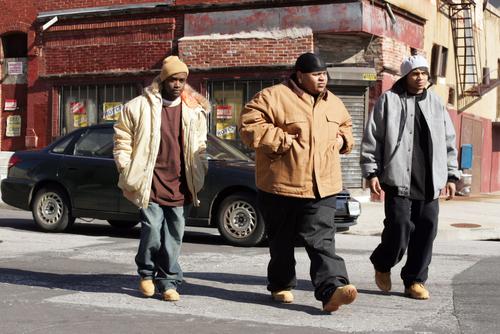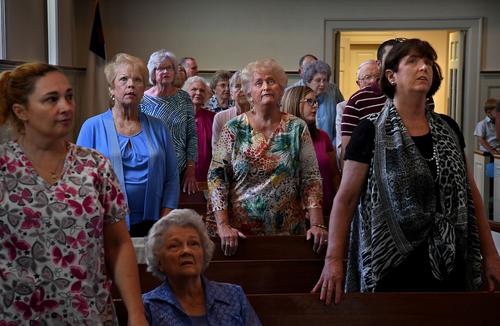Juneteenth.
The new American holiday, a celebration of the date when slaves in Texas finally heard the news that they had been freed: June 19, 1865. A commemoration of the fact that it took 89 years from the time that Thomas Jefferson wrote “all men are created equal” until the time that some men stopped enslaving other men. A chance to reflect that it took another 100 years before all men could stay in the same hotels, eat at the same restaurants, attend the same schools, and vote in the same elections.
For me, it’s a chance to reflect on how the Founding Fathers patted themselves on the back for their love of freedom, even as they systematically took away the freedom of others. As I reflect on their hubris and self-congratulatory delusions, it’s a chance for me to ask if I need to confront any blind spots of my own.
Two years ago, I saw my own racism for the first time. I wrote this essay just three weeks after George Floyd was murdered. I’m publishing it now, to finally acknowledge my own sin and failures. Public confession is good for the soul. Maybe reading this will help you too.
I didn't think I was racist. I was wrong. I have racist ideas that I've learned from the culture around me, and I didn't even realize that I had learned them. This became clear to me, as I read White Fragility by Robin DiAngelo and The Myth of Equality by Ken Wytsma.
DiAngelo kicked things off.
Many of us have been taught to believe that there are distinct biological and genetic differences between races. This biology accounts for visual differences such as skin color, hair texture, and eye shape, and traits that we believe we see such as sexuality, athleticism, or mathematical ability. The idea of race as a biological construct makes it easy to believe that many of the divisions we see in society are natural. But race is socially constructed. The differences we see with our eyes—differences such as hair texture and eye color—are superficial and emerged as adaptations to geography. Under the skin, there is no true biological race. The external characteristics that we use to define race are unreliable indicators of genetic variation between any two people.
And then Ken Wytsma reinforced it.
…the concept of humanity’s being divisible into different races has no scientific validity.
…these features that so impress us when we look at one another are extremely superficial. Beneath the skin we are all basically the same—and this is especially true at the genetic level. Genetically speaking, I (with my rather unmixed Dutch heritage) am more similar to a male Maori than I am to any female, including my own mother and daughters. Whatever genetic differences the Maori man and I might have throughout the rest of our twenty-three pairs of chromosomes, they are fewer than the number of gene differences between men (with one X-and one Y-chromosome) and women (who have two X-chromosomes), even when a man and woman are closely related.
Indeed, the most remarkable thing about the genetics of humanity is how little diversity it contains in comparison to other populations of creatures, including other primates. The entire human population displays far less genetic diversity than that of chimpanzees, bonobos, or orangutans.
…the number of genetic differences among all Norwegians—or among all Nigerians—is greater than the number of genetic differences that could be used to distinguish between Norwegians and Nigerians. Externally, a Norwegian and a Nigerian look very different; but their respective genomes are quite similar, even within the genes that code for melanin and thereby determine skin color. Such genes differ only by a very few nucleotides, and the adaptive change that led to light skin occurred more than once as humans migrated to northerly latitudes.
Distinguishing among people groups on the basis of race is an artificial, superficial venture with no scientific credibility. Of course, this reality is less important than the perception. Even though race has no anthropological or genetic grounding, our modern world is preoccupied with identifying differences between people groups and basing our behaviors on those perceived differences.
These ideas—that there is no such thing as biological race; that genetic differences between people of the same nationality are greater than the differences that can be used to distinguish between nationalities—knocked me back on my heels. I've absorbed the racist idea that there are innate differences between Black people and White people.
I would have pointed to cultural differences and claimed that they were the result of innate differences. Such as: Black people are more athletically gifted and better at sports than White people are. That Black people are more prone to diseases like sickle cell anemia than White people are. That Black people are more exuberant than White people, more violent than White people, and dance better than White people, all because they are less inhibited than White people.
As soon as I read Robin DiAngelo's and Ken Wytsma's words, it was like a bomb went off in my brain. The differences really, truly, are only melanin deep. At the risk of trivializing identity, it's a mask, a costume, a covering that we are all born with. And we randomly get the lighter version or the darker version. But we are all exactly the same underneath. Exactly.
It's horrifying to realize that all of humanity is exactly the same underneath our skin. It’s horrifying to come to grips with the idea that we Americans have treated millions of people differently because of a highly visible, yet completely surface-level difference. People who are the same as me in every way that matters—all the same potential, abilities, and traits—being systematically enslaved, shut out, disenfranchised, beaten, murdered, slandered, feared, and imprisoned.
I haven’t enslaved, beaten, or murdered anyone because of their perceived race. But feared? Slandered? I have felt more unsafe walking through Black neighborhoods than White neighborhoods, even though I knew nothing about the neighborhood other than the skin differences that I could see.
After reading what DiAngelo and Wytsma wrote, I realized that I’ve been putting people into different buckets based on their “race”. I’ve had a mental category for “Black actors” separate from “actors”, “Black scientists” from “scientists”, “Black musicians” from “musicians”, and “Black writers” from “writers”. When I think about accomplishments, I think about them in terms of those categories. “Tom Cruise is a great actor and Denzel Washington is a great Black actor”, as though they weren’t both American men, of similar ages, doing the same job.
Denzel Washington is not a great Black actor. He’s a great actor. Ray Charles was not a great Black musician. He was a great musician. George Washington Carver was not a great Black scientist; he was a great scientist. Frederick Douglass was not a great Black orator; he was a great orator. If I want to truly give all people the same weight, I need to evaluate people as Americans, not African Americans or Chinese Americans or Indians.
This is my racism: I’ve bought into the lie that skin color indicates deeper genetic differences. And while I never would have admitted it, I separated humanity into “us” and “them” based on those perceived genetic differences. And that let me be less concerned about what happened to “them,” then I was about what happened to me and people like me.
I didn’t want to believe that Americans were treating some people better than others because of perceived race. Whenever I heard stories that seemingly showed racist outcomes, I explained it all away. Instead of believing whoever was writing or speaking, I decided that they must be wrong or mistaken or lying or misrepresenting the situation. I would bring my superior education and knowledge to explain what was really going on. I had an explanation for why everything that seemed racist, really wasn’t.
After George Floyd was murdered, I started listening and reading with an open mind. I realized that I have been wrong. That I was guilty of treating some people as lesser. And I made a commitment to start listening when people told me how racism was affecting their lives. Not listening to argue and deflect, but listening to learn. I’ve spent the last 2 years doing that and it has been an eye-opening experience.
I’m not done yet. I’m going to continue to seek out the stories of the people that I used to ignore, because there is no us and them.
There is only us.

